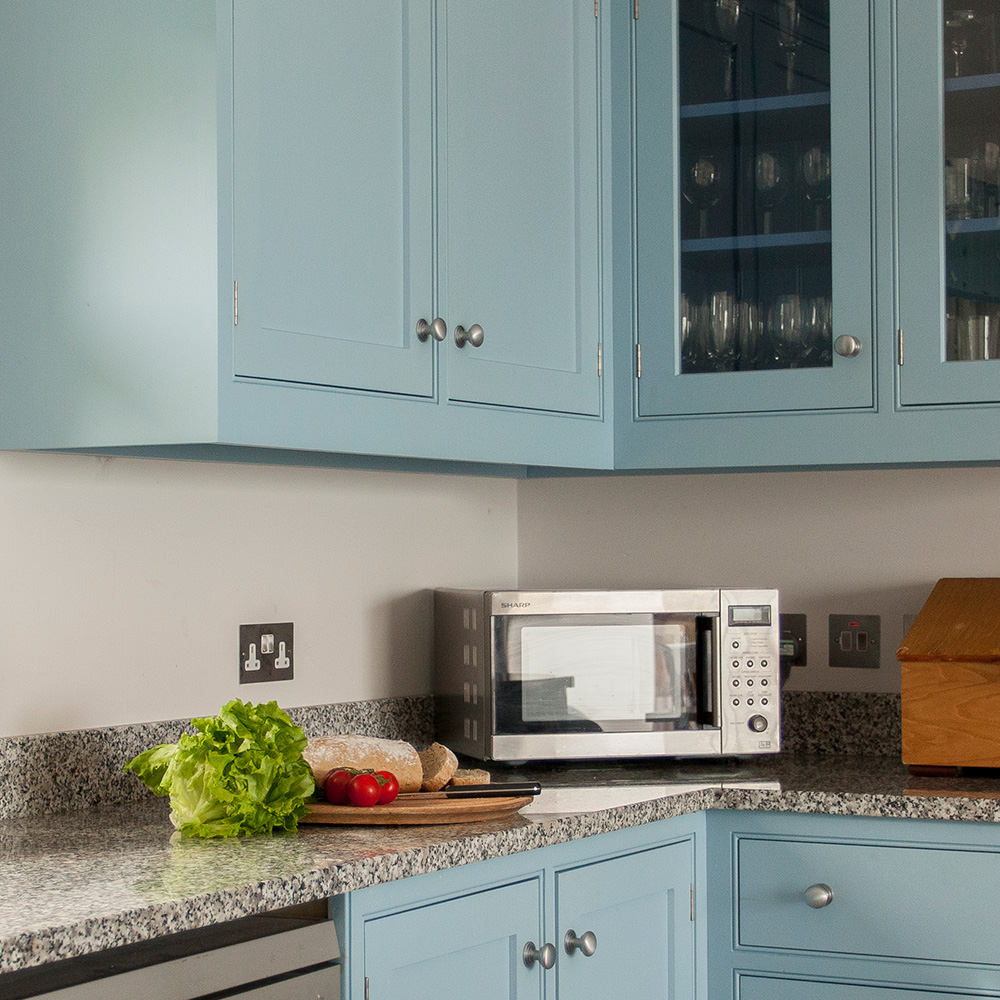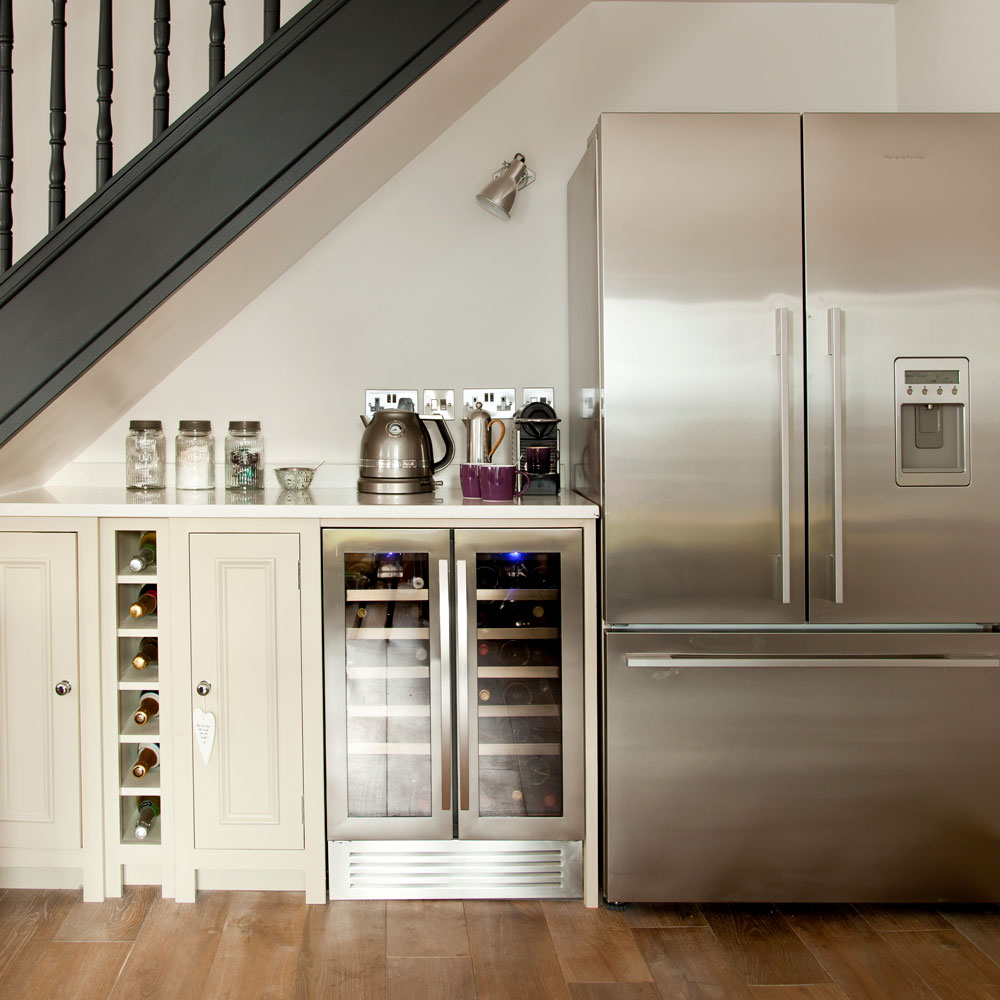Not switching off these household gadgets could add £500 a year to your bills
Consider this your official notice to stop leaving your TV on standby
If your energy bills are consistently higher than you'd like, not switching off common household appliances and gadgets could well be to blame. Although no one appliance will hike your energy bill on its own, collectively they can add a shocking £500 onto your annual energy expense.
You may own the best washing machine, or the latest smart tech, but how much does it cost you when you're not using it? Money.co.uk’s energy expert Ben Gallizzi said almost every UK household burns energy needlessly due to having devices switched on even when not in use.
'Most people don’t realise how much power their devices are using even when they’re not turned on. Items such as televisions, computers and smart speakers all use a surprising amount of electricity even when they aren’t being actively used,' he explains.
These are the most common devices that you're probably forgetting to turn off – and how much they're costing you.
Household items your forgetting to turn off
1. Televisions
Just about everyone now owns a flat-screen TV with many homes containing multiple big screens. They’re great for watching movies or football, but the bigger the screen, the more energy the set will consume, with a typical LCD screen using around £50 of power every year.
Many modern TVs don’t even have an off button and instead are left on stand-by at all times. While TVs are a lot more energy efficient than they used to be, the only way to be sure you’re not using power when the TV is not in use is to switch it off at the wall.

2. Laptop computers / PCs
With millions of us working at home during the pandemic there’s probably been more laptops and PCs plugged into our homes than ever before. The bad news is that simply closing your laptop’s screen at the end of the working day doesn’t stop it from consuming power.
Get the Ideal Home Newsletter
Sign up to our newsletter for style and decor inspiration, house makeovers, project advice and more.
Laptops can use around 15p a day worth of electricity which adds up to more than £50 a year – about the same as an average-sized TV. Even if the computer is powered off, it can still use some power. Once again, the only way to be certain it’s not consuming energy is to switch off at the wall.
3. Microwaves
Millions of kitchens around the UK include a microwave with a display that’s lit up at all hours of the day and night. But when the display is lit you know it’s consuming power.
In fact, microwaves possibly have one of the smallest use time to standby time ratio of any of our common gadgets. Most are only used for a few minutes each day at most, yet are left on standby 24/7. Switching them off at the wall when not in use can save around £6 a year in electricity.
4. Phone chargers
Millions of us leave our chargers plugged into the wall all the time but every charger will be consuming electricity at all times, whether the phone or tablet is attached or not. Charging a phone at night can also waste power as the charger uses the same amount even if the phone becomes fully charged.
With many families having multiple chargers around the house, switching them off at the wall can save around £30 a year.

5. Smart speakers
Our homes are becoming more connected, with many households now owning more than one smart speaker. However, even if it smart, a speaker that hasn't been switched off properly is costing you money. By switching them off at the wall when we’re not using them we can save around £35 a year.
6. Games consoles
This is a big one for energy consumption. Games consoles have kept millions of us entertained during lockdown, but by leaving them on standby when not in use, gamers are burning energy unnecessarily. If you have multiple consoles, the energy bill can be eye-watering, with estimates reaching as much as £200 a year.
7. Internet routers
Few of us could survive without our wifi networks these days but do we need to have our router plugged in around the clock? Each router uses around £10 a year worth of electricity each year so powering it down when we’re out of the house or away on holiday can save cash.

8. Kitchen appliances
When it comes to switching off our gadgets many people fail to consider their kitchen technology. Even the best fridge freezers need to be plugged in at all times, there are several other items in the kitchen that can be turned off at the wall when not in use.
Dishwashers are often left on standby all day long but only used once a day. Other gadgets such as toasters, kettles and coffee machines can all be drawing power if left plugged in when not being used. Each of these could save around £10 worth of energy each year, and with many modern kitchens now containing numerous gadgets, the savings definitely add up.
For larger appliances such as washing machines, tumble dryers and fridge-freezers the best way to save energy is to choose a machine with the best efficiency rating and, if you can, to switch it off at the wall when not needed.
Savvy users can also make serious savings by being mindful of cheaper energy tariffs which may be available by setting timers for off-peak times. By managing the energy usage of kitchen appliances carefully it should be possible to save up to £130 a year off energy bills.
Anna Cottrell is Consumer Editor across Future's home brands. She moved to the world of interiors from academic research in the field of English Literature and photography. She is the author of London Writing of the 1930s and has a passion for contemporary home decor and gardening.
-
 Should your front door colour match your hallway? Interior experts reveal 3 reasons why it should (and 3 reasons it shouldn't)
Should your front door colour match your hallway? Interior experts reveal 3 reasons why it should (and 3 reasons it shouldn't)Are you team matching or contrasting?
By Ellis Cochrane
-
 This £200 limited-time discount makes this Dyson vacuum cheaper than I’ve ever seen it - run don’t walk to Argos for this bargain
This £200 limited-time discount makes this Dyson vacuum cheaper than I’ve ever seen it - run don’t walk to Argos for this bargainIt's the most affordable Dyson on the market right now
By Lauren Bradbury
-
 Martin and Shirlie Kemp’s pastel flower beds has given their Victorian renovation a romantic look - how you can get the look
Martin and Shirlie Kemp’s pastel flower beds has given their Victorian renovation a romantic look - how you can get the lookTheir pastel garden is the cottage garden inspo you've been looking for
By Kezia Reynolds